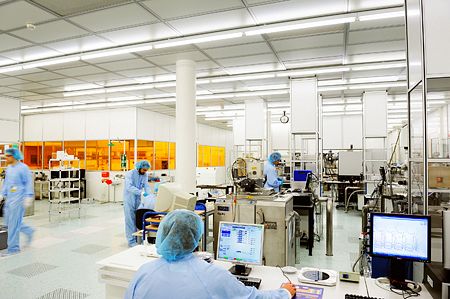The Technical University of Eindhoven fired a Russian researcher in quantum optics after the Dutch security services warned he was spying for his home country. What information could he possibly have sold?
What information exactly the post doctoral researcher Ivan Agafonov (27) is suspected of having sold to Russian intelligence services has not been made public. Media speculate that it must have been information on how to build super-fast quantum computers.
Whatever it was, the Dutch General Intelligence and Security Services (AIVD) took the matter seriously. Agafonov was a ‘danger to national security’, or so TU Eindhoven was told by the AIVD in July 2014. The university ended his contract immediately, and the young engineer went back to Russia. All this happened more than a year ago. But the press did not take notice until last week, after Der Spiegel had written a long and juicy article about the affair.
Agafonov held a postdoc position in quantum optics at the section photonics and semiconductor nanophysics starting from October 2013. That group works on superconducting single-photon detectors. He was a fellow in an E.U.-funded Marie Curie Initial Training Network called Photonic Integrated Compound Quantum Encoding (PIQUE), with a project called “Integration of detectors with GaAs-based sources and circuits.”
The findings could become important one day for quantum computers and quantum communication. Is it possible that Agafonov had access to valuable, sensitive information? His former supervisor, Andrea Fiore, was not available to comment.
TU Delft nanophysics Professor Leo Kouwenhoven knows the research group very well. “It is a good group”, he said. “For now though their work is very fundamental in nature.” So what the Russians would have been after puzzles him a bit.
Agafonov is also believed to have been spying on the Max Planck Institute for the Science of Light in Erlangen, where he worked from 2009 to 2011. During that time, he published several highly cited papers together with Gerd Leuchs, a professor in photonics.
“We have not the slightest idea what he is supposed to have spied on at our Institute”, Leuchs responded by email. “All results have been published as quickly as the scientific journals’ reviewing process allowed. These articles openly discuss all technical issues, and the topic was not “sensitive”.”
The fact that the researcher worked in an academic setting in Germany as well as in The Netherlands makes this matter even more mystifying. As Leuchs says, all findings were being made public anyway.
“That is partially true”, said Kouwenhoven, “Research methodologies are only described in main lines. Many tricks and little subtleties on how exactly to make new materials, for instance, are not described. Still, to send someone out to spy, seems strange. We also gather information from other research groups around the world. Our postdocs sometimes go work abroad. If they come back to our group later on, they have learned all kinds of new things. We call this knowledge exchange, not spying.”
Der Spiegel had gotten its hand on a document from the German attorney general in Karlsruhe. Prosecutors are now conducting an investigation to determine whether the scientist can be charged with working for foreign intelligence.
The German secret services had discovered that Agafonov had monthly rendezvous’ with a Russian diplomat from Bonn, Germany, while he was working at the Technical University of Eindhoven. During these meetings — at a coffee shop in the German city of Aachen, a 75-minute drive from Eindhoven — Agafonov received money. In July 2014, the Russian physicist was detained at Dusseldorf airport together with his wife. Police released him after questioning. The police also took his fingerprints and seized his telephone, laptop and e-reader.
To Der Spiegel Agafonov said that the payments he received were for his apartment in Moscow, which he had rented to friends of the diplomat for 800 euros a month.



Comments are closed.